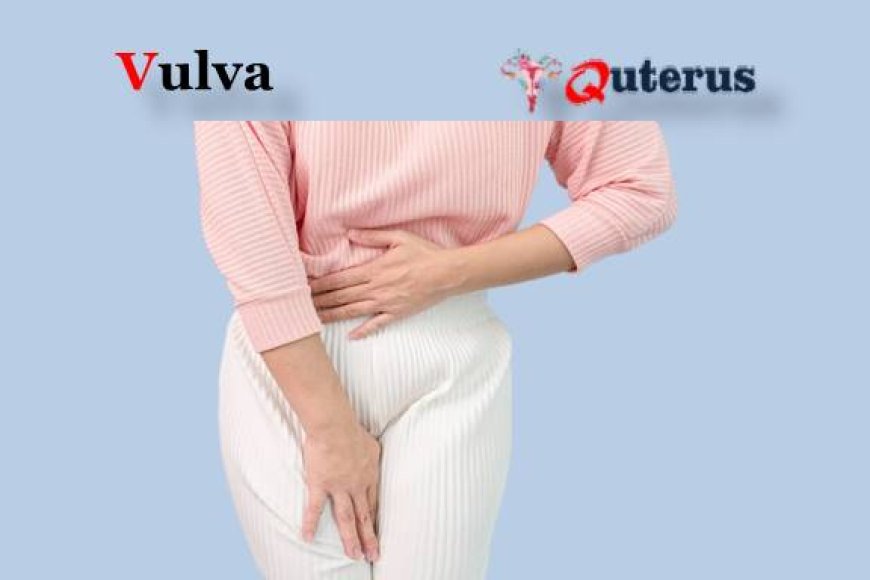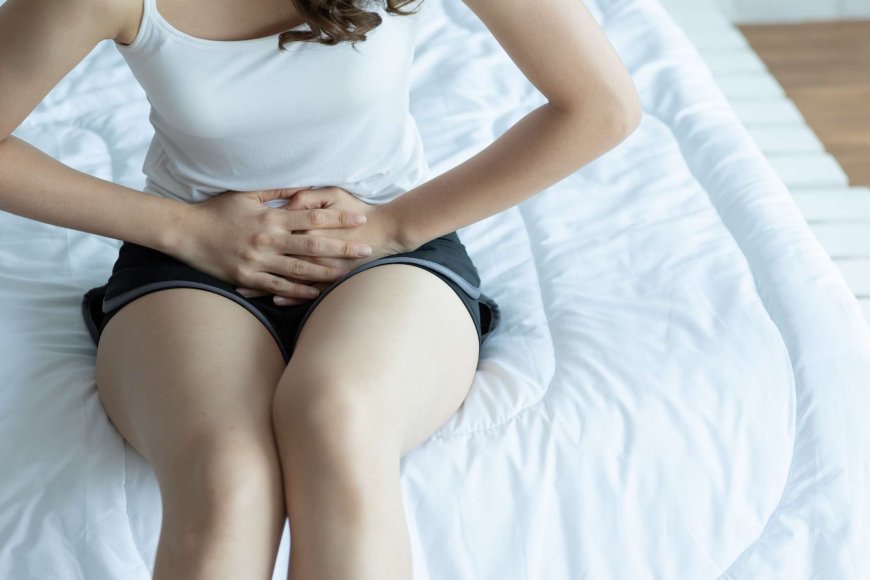What changes cause Bloating or fluid retention in premenstrual symptoms?
Fluid retention before periods, also known as premenstrual water retention, is usually caused by hormonal changes. During the late luteal phase of the menstrual cycle (one to two weeks before the start of menstruation), progesterone levels start to rise, which can lead to an increase in sodium and water retention. This can cause bloating, and swollen or tender breasts.

What changes cause Bloating or fluid retention in premenstrual symptoms?
Bloating or fluid retention is a common symptom of premenstrual syndrome (PMS) that women may experience in the days leading up to their period. Hormonal changes during the menstrual cycle cause shifts in the body's fluid balance, which can lead to fluid accumulation and bloating.
Estrogen and progesterone are hormones that play a role in fluid balance regulation. In the premenstrual phase, their levels fluctuate, leading to fluid retention in the body. This often manifests as bloating and/or swelling in the hands, feet, and legs.

To alleviate bloating or fluid retention during PMS, women can try the following:
· Reducing salt intake can help alleviate bloating, as salt increases fluid retention. Women should avoid processed and packaged foods that contain high amounts of salt (sodium).
· Increasing water intake can help maintain normal fluid balance in the body.
· A low-fat diet can reduce bloating since high fat intake could act as a gastric irritant.
· Gentle exercise such as yoga or walking can help reduce water retention and promote healthy digestion.
If bloating or fluid retention during PMS persist, women should consult their healthcare provider as an underlying medical condition may be the cause. A healthcare provider may suggest lifestyle modifications, hormonal treatments, or prescription medications to manage symptoms. Women with underlying medical conditions such as kidney or liver disease must take additional precautions as directed by their healthcare provider.

Learn from the video also
Bloating during Period | How to Reduce Bloating during Periods?
BLOATING & WATER RETENTION before your period?
Why do I bloat so much before my period?
Causes of Stomach Bloating | What is Stomach Bloating | Symptoms of Bloating

Frequently Asked Questions
What causes fluid retention before period?
Fluid retention before periods, also known as premenstrual water retention, is usually caused by hormonal changes. During the late luteal phase of the menstrual cycle (one to two weeks before the start of menstruation), progesterone levels start to rise, which can lead to an increase in sodium and water retention. This can cause bloating, and swollen or tender breasts.
Moreover, fluctuation in hormones like estrogen and progesterone, changes in blood pressure, as well as salt and water balance in the body can contribute to fluid retention. Certain medications or underlying medical conditions like kidney, liver or heart disease can also cause fluid retention.
It's important to note that while premenstrual water retention is common, excessive swelling or severe symptoms may require medical attention. If you experience sudden or severe swelling, it is essential to speak to a healthcare provider to rule out any underlying conditions and provide appropriate treatment.

What causes premenstrual bloating?
Premenstrual bloating is a common symptom experienced by many women and is generally caused due to hormonal fluctuations during the menstrual cycle.
Before menstruating, the body ramps up production of the hormone progesterone, which is known to cause bloating by causing an increase in sodium and water retention. This water retention can lead to swelling and bloating in the abdomen, fingers, and other parts of the body.
Additionally, high levels of estrogen can trigger other symptoms like fatigue, irritability, and headaches, which can contribute to feelings of discomfort and bloating.
Diet and lifestyle factors can also contribute to premenstrual bloating. Consuming salty or processed foods, alcohol, and caffeine can trigger or worsen symptoms, as can consuming less water than required.
If premenstrual bloating affects daily life or is accompanied by other concerning symptoms like severe cramping, it's essential to speak to a healthcare provider to rule out any underlying conditions and provide appropriate treatment.
What type of fluid comes before period?
Before menstruation, the body goes through hormonal changes that cause the cervix (the opening of the uterus) to produce cervical mucus. The type of mucus that is produced varies throughout the menstrual cycle and is influenced by hormones like estrogen and progesterone.
In the days leading up to menstruation, the cervical fluid can become thicker, stickier, and more opaque, with a white, creamy, or sticky texture. This is often referred to as "creamy" cervical mucus and can be an indication that the body is gearing up for menstruation.
Some women may also experience light spotting or discharge before their period, which is usually brown, pink, or red and can look like light menstrual bleeding. This happens as the uterus sheds the lining that has built up during the menstrual cycle.
It is important to note that any changes in vaginal discharge or bleeding patterns should be monitored, and if there are any unusual or concerning changes, to seek medical attention to rule out any underlying conditions.
How long does period bloating last?
Period bloating typically lasts for a few days to a week, coinciding with the menstrual cycle of an individual. Bloating usually occurs in the days leading up to menstruation, peaking around the first day or two of bleeding, and then gradually subsiding as hormone levels return to normal after menstruation.
The intensity and duration of bloating may vary from person to person and may be influenced by factors such as diet, lifestyle, and underlying medical conditions. For some women, bloating may persist for a longer period or be more severe, and may require medical attention to rule out any underlying conditions.
It is essential to monitor and record any unusual symptoms or changes, and seek medical attention if bloating persists, is severe, or is accompanied by other concerning symptoms like severe cramps, excessive bleeding, nausea, or vomiting. Your healthcare provider can help identify underlying causes, provide appropriate treatment, and offer measures to manage symptoms.
How early does premenstrual bloating start?
Premenstrual bloating can start at varying times depending on the individual's menstrual cycle and hormonal fluctuations. On average, premenstrual bloating can start around two weeks before the period. This is typically around the late luteal phase of the menstrual cycle when the hormone progesterone starts to rise, causing an increase in sodium and water retention leading to bloating.
However, individual cycles can differ, and some women may experience bloating earlier, while others may not experience it at all. It is essential to monitor any unusual symptoms that occur throughout the menstrual cycle and speak to a healthcare provider if symptoms become increasingly severe or are accompanied by other concerning symptoms to rule out underlying conditions.
How much bloating is normal during PMS?
It is normal for women to experience mild bloating and discomfort during PMS, with some women experiencing bloating as a predominant symptom. On average, bloating during PMS may cause a weight gain of 1-3 pounds. However, the intensity and duration of bloating may vary depending on the individual's cycle, lifestyle, and underlying medical conditions.
Mild to moderate bloating, which is relieved with home remedies like a balanced diet, exercise, and staying hydrated, can be considered normal during PMS. However, excessive bloating or bloating that lasts more than a week may need medical attention to rule out other conditions like ovarian cysts, fibroids or endometriosis.
It is essential to monitor any unusual symptoms, like severe abdominal cramps or pain, nausea, or vomiting, and speak to a healthcare provider if symptoms become increasingly severe or are accompanied by other concerning symptoms.

Does PMS cause gas and bloating?
Yes, PMS can cause gas and bloating. During the menstrual cycle, the body experiences hormonal changes that can cause fluid retention, leading to an increase in bloating and gas.
In the late luteal phase of the menstrual cycle, progesterone levels rise, causing an increase in sodium and water retention, which can cause bloating and gas.
Moreover, the changing levels of estrogen and progesterone may slow down the digestive system and affect bowel movements, leading to constipation and gas.
If gas and bloating during PMS become increasingly severe or are accompanied by other concerning symptoms like severe abdominal cramps, nausea, or vomiting, it may require medical attention to rule out any underlying medical conditions.
Does PMS bloating cause weight gain?
Yes, PMS bloating can cause temporary weight gain due to fluid retention in the body. During the late luteal phase of the menstrual cycle, the hormone progesterone rises, leading to an increase in sodium and water retention, which can cause bloating. This can result in a temporary weight gain of 1-3 pounds.
However, it's essential to note that this weight gain is mostly water weight and not fat. This weight gain usually decreases or disappears entirely within the first few days of menstruation as the body sheds excess fluids.
If the bloating during PMS becomes excessive or is accompanied by other concerning symptoms, it requires medical attention to rule out other medical conditions.
Does bloating start before missed period?
Bloating can start before a missed period and is often associated with premenstrual syndrome (PMS). The timing of bloating can vary from person to person, but it typically starts a few days to a week before the menstrual period and is related to hormonal changes in the body.
During PMS, hormonal fluctuations may cause fluid retention, leading to bloating and abdominal discomfort. Therefore, some women may start experiencing bloating, breast tenderness, and other PMS symptoms in the days leading up to their period.
It's essential to note that bloating before a missed period can also be due to other underlying medical conditions. If the bloating is persistent, severe, or is accompanied by other concerning symptoms like severe cramping, nausea, or vomiting, it requires medical attention to rule out underlying conditions and provide appropriate treatment.
What foods cause PMS bloating?
Certain types of foods may cause or exacerbate PMS bloating symptoms. These foods include high sodium foods, refined sugars, caffeine, and alcohol.
High sodium foods contribute to water retention, which can lead to bloating. Foods that are high in sugar can cause inflammation and worsen bloating symptoms. Caffeine and alcohol can both dehydrate the body, leading to constipation and bloating.
It is best to avoid these foods or limit their intake during PMS, and in general, consume a balanced diet that includes whole grains, fruits, vegetables, and low-fat proteins.
It is also suggested to drink plenty of water and stay physically active to help reduce PMS symptoms. Keeping a food diary can also help identify PMS symptoms triggers and help in managing them in the future.
.....

We provide you with authentic, trustworthy and revelant information

Have issue with the content?
 Disclaimer
Disclaimer
The information given on our website www.uterusq.com is being posted only for the purpose of knowledge and information, before using them, choose them completely and check the correctness with your subject matter expert. We (www.uterusq.com) have no responsibility for any kind of loss.







